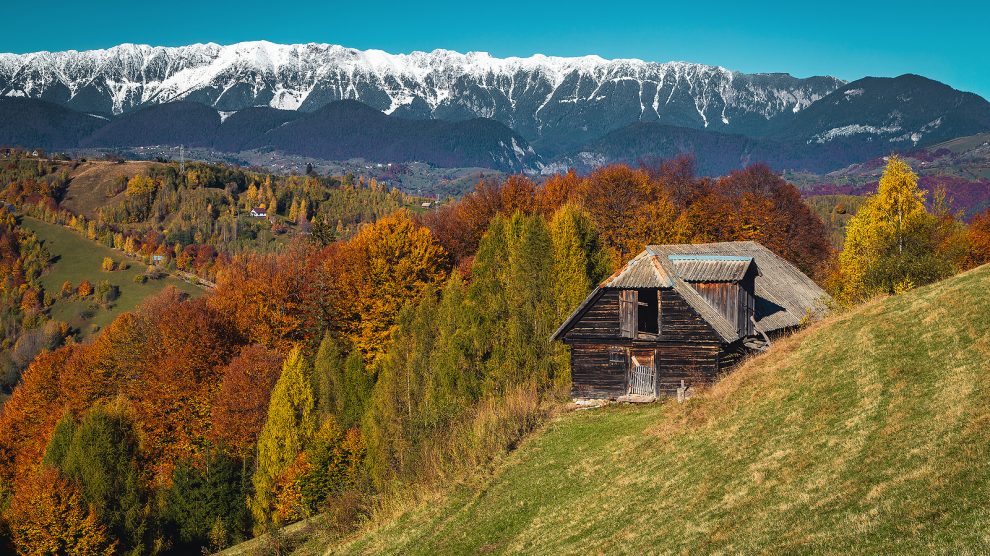Public financing, including from the EU, will not be enough to meet Romania’s green objectives. Incentives need to be put in place to mobilise private capital at scale, suggests a new report.
Romania is highly vulnerable to the risks of climate change, particularly floods and drought. Its economy is relatively carbon intensive, at two and a half times the average for the European Union. Rising temperatures and an increased frequency of heatwaves pose additional threats to the economy, people and infrastructure.
Nevertheless, a new report suggests that Romania could raise its national income by almost three times in the next three decades while taking action to improve resilience against climate change and reduce carbon emissions, if it continues broader economic reforms.
- The time has come for Romania to boost its potential
- For makers of electric vehicles, emerging Europe is increasingly the place to be
- The changing face of Bucharest
The report, however, from the World Bank, also notes that the investments needed to develop a decarbonised energy sector alone is estimated at 356 billion US dollars by 2050, representing about three per cent of the country’s cumulative GDP over the time horizon.
“While the challenges of decarbonisation are considerable, with the proper mix of structural, social and economic reforms, and effective investments underlined by public, private and EU funds, Romania can improve living standards while achieving its climate goals,” says Marina Wes, World Bank country director for the European Union.
The report—the first to look at climate and development in an EU member—notes that Romania is on track to achieving its 2030 target of reducing emissions by 55 per cent from 1990 levels. In fact, it already reduced emissions by 53 per cent between 1990 and 2018.
However, achieving its pledge of carbon neutrality by 2050 will require substantive and coordinated policy action and funding.
With over 70 per cent of Romania’s total energy usage dependent on fossil fuels, energy transition is paramount. The energy sector, comprising electricity generation, heating, transportation and manufacturing, accounts for 66 per cent of emissions in the country, followed by agriculture (17 per cent), and industry (12 per cent).
To reach net zero by 2050, Romania needs to implement a massive electrification programme replacing direct consumption of fuels with energy generated from renewable sources. The report demonstrates that the incremental cost of developing a greener, renewable power system does not substantially increase investment needs. Increasing energy efficiency in buildings, especially through better insulation, is also highlighted as a critical investment.
A pathway to net zero
The report offers a suggested pathway to net zero by 2050, with a focus on several other priority areas in addition to decarbonising the energy sector. These include decarbonising the transport sector, an increasingly large emitter without which Romania cannot achieve its net zero target. Accelerating investments, deploying existing technologies, and encouraging behavioural shifts can accelerate progress, especially if backed by private sector investments in rapid charging infrastructure for electric vehicles, the report says.
Romania also needs to optimise the use of water, which is among the most urgent emerging issues for climate adaptation and mitigation in the country. The report shows that water scarcity is already a concern in the country and will become worse, directly impacting energy generation, agriculture, and consumers.
The country will also need to invest in human capital and skills. Romania is already challenged by skills gaps and a lack of an adequately trained labour force. Without adequate policies and investments in human development, the transition to a low-carbon economy risks exacerbating this situation and creating a major constraint to growth and meeting climate targets.
People—and the private sector—are key
“People are key to the success of a green transition,” says Anna Akhalkatsi, World Bank country manager for Romania. “The major shift from brown to green sectors cannot be done without an adequately skilled labour force. Romania should invest in closing the skills gaps in the current labour force and evolve its education system to prepare the next generation for the new economy and jobs.”
Given Romania’s considerable fiscal constraints, the report notes the critical role of the private sector not only in the decarbonisation effort but also in financing relevant investments, particularly in the transport and electricity sectors. Strengthening the existing public-private partnership (PPP) framework could help mobilise private finance.
“The green transition will generate unprecedented opportunities for growth, development, and technological upgrades, building up on Romania’s existing strengths and potentially moving it up the value chains. Public financing, including from the EU, will not be enough to meet Romania’s green objectives. Incentives need to be put in place to mobilise private capital at scale,” says Ary Naïm, manager for Central and South Europe at the International Finance Corporation.
Unlike many news and information platforms, Emerging Europe is free to read, and always will be. There is no paywall here. We are independent, not affiliated with nor representing any political party or business organisation. We want the very best for emerging Europe, nothing more, nothing less. Your support will help us continue to spread the word about this amazing region.
You can contribute here. Thank you.







Why the article has to illustrated with a picture showing an abandoned, decaying shack, suggesting that Romania is a dirty poor and uncouth country? In short, why this demeaning picture? Is Nigel Farage the Owner of this publication?
If the intention had been to make Romania look bad, there are far better ways of doing so than publishing a photo of the magnificent Carpathians. Rather, the intention was to highlight (as the report referenced in the article does) that there is another Romania beyond the office buildings of Bucharest, a Romania that needs to be developed, sustainably, if the country is to meet its full potential.